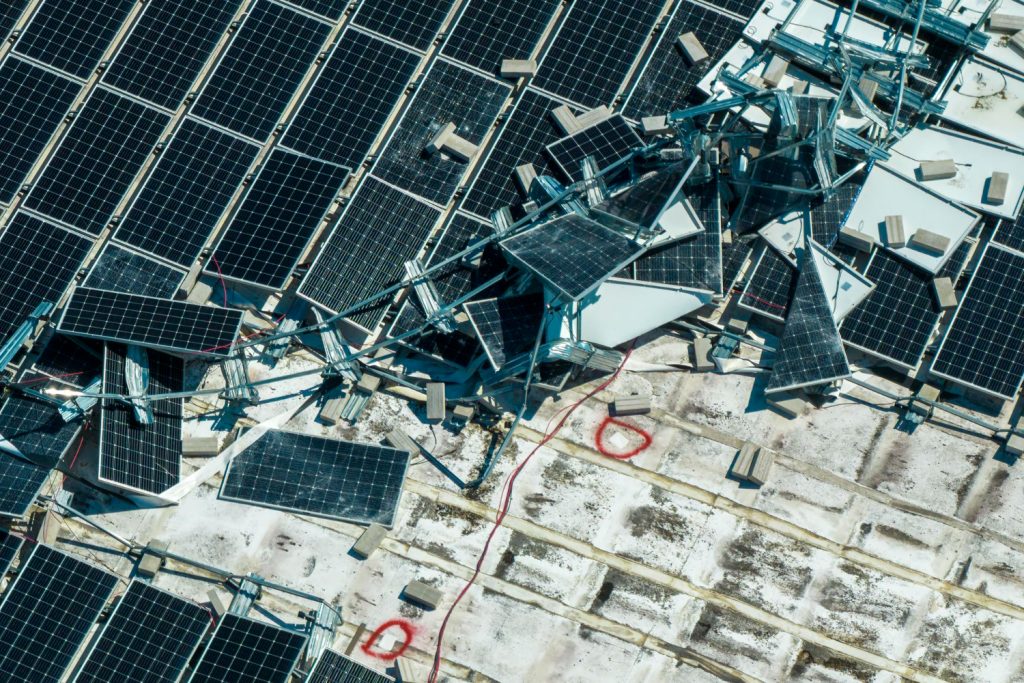Natural disasters such as hurricanes, earthquakes, and floods can strike without warning, leaving communities without power for days or even weeks. In these scenarios, having a reliable source of energy becomes crucial. Solar panels in disaster preparedness have emerged as a vital component, providing a sustainable and resilient solution for continuous power supply. This blog explores the importance of home solar solutions in disaster preparedness, focusing on the benefits and implementation of residential solar systems.
Why Solar Panels in Disaster Preparedness are Essential
Reliable Power Supply
During a disaster, traditional power grids can be severely disrupted. Residential solar systems provide a dependable alternative by harnessing the sun’s energy, ensuring that essential devices and systems continue to operate.
Benefits:
- Energy Independence: Solar panels allow homeowners to generate their own electricity, reducing reliance on the grid.
- Continuous Power: With solar panels and battery storage, critical appliances and communication devices can remain operational even during extended power outages.
Environmental Benefits
In addition to providing reliable power, solar panels offer significant environmental advantages. They reduce the dependence on fossil fuels, which are often in short supply during disasters.
Environmental Impact:
- Reduced Emissions: Solar energy is clean and renewable, lowering the carbon footprint.
- Sustainable Energy Source: Solar power can be harnessed even in remote areas, providing a sustainable solution in times of crisis.
Implementing a Solar System for Home in India
Solar Products for Home Use in India
India has seen a surge in the availability and adoption of solar products for home use. From solar lanterns to comprehensive solar power systems, there are various options to enhance disaster preparedness.
Popular Solar Products:
- Solar Lanterns: Portable and efficient, ideal for emergency lighting.
- Solar Water Heaters: Ensure a steady supply of hot water without relying on electricity.
- Solar Chargers: Keep communication devices charged and operational.
Setting Up a Residential Solar System
To effectively prepare for disasters, it’s essential to install a comprehensive solar system for home in India. This involves several key components:
- Solar Panels: The core component that captures solar energy. The best solar panels offer high efficiency and durability, ensuring maximum energy capture even under challenging conditions.
- Inverter: Converts the direct current (DC) produced by the solar panels into alternating current (AC) used by household appliances.
- Battery Storage: Stores excess energy generated during the day for use at night or during power outages.
- Charge Controller: Regulates the flow of electricity to and from the battery, preventing overcharging and extending battery life.
Choosing the Best Solar Panels
Selecting the best solar panels is crucial for ensuring optimal performance and reliability. Consider the following factors:
- Efficiency: Higher efficiency panels generate more electricity from the same amount of sunlight.
- Durability: Panels should withstand extreme weather conditions, including heavy rain, high winds, and hail.
- Warranty: Look for panels with a long warranty period, indicating manufacturer confidence in their product.
Benefits of Home Solar Solutions in Disaster Preparedness
Emergency Power Supply
In the aftermath of a disaster, having a reliable source of power is crucial for:
- Communication: Keeping phones and internet devices charged to stay in touch with emergency services and loved ones.
- Medical Devices: Ensuring that critical medical equipment remains operational.
- Lighting and Heating: Providing essential lighting and maintaining comfortable living conditions.
Cost Savings
While the initial investment in home solar solutions can be significant, the long-term cost savings are substantial. Solar power reduces electricity bills and provides a hedge against rising energy costs.
Government Incentives
The Indian government offers various incentives and subsidies to encourage the adoption of solar energy. These can significantly reduce the overall cost of installing a solar system for home in India.
Conclusion
Solar panels play a pivotal role in disaster preparedness by providing a reliable, sustainable, and cost-effective power source. As natural disasters become more frequent and severe, investing in residential solar systems is a proactive step towards ensuring energy security and resilience. With a wide range of solar products for home use in India and the availability of the best solar panels, homeowners can enhance their preparedness and safeguard against power outages during emergencies. By integrating solar power into disaster preparedness plans, you can ensure that your household remains safe, connected, and functional when it matters most.





